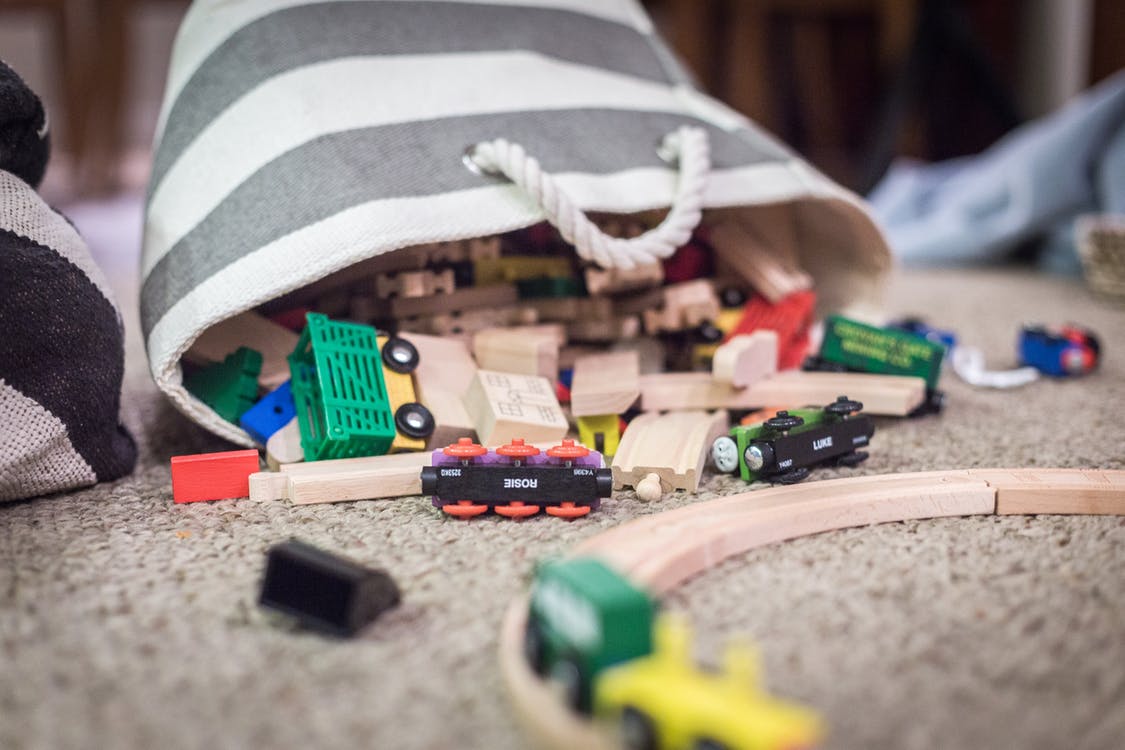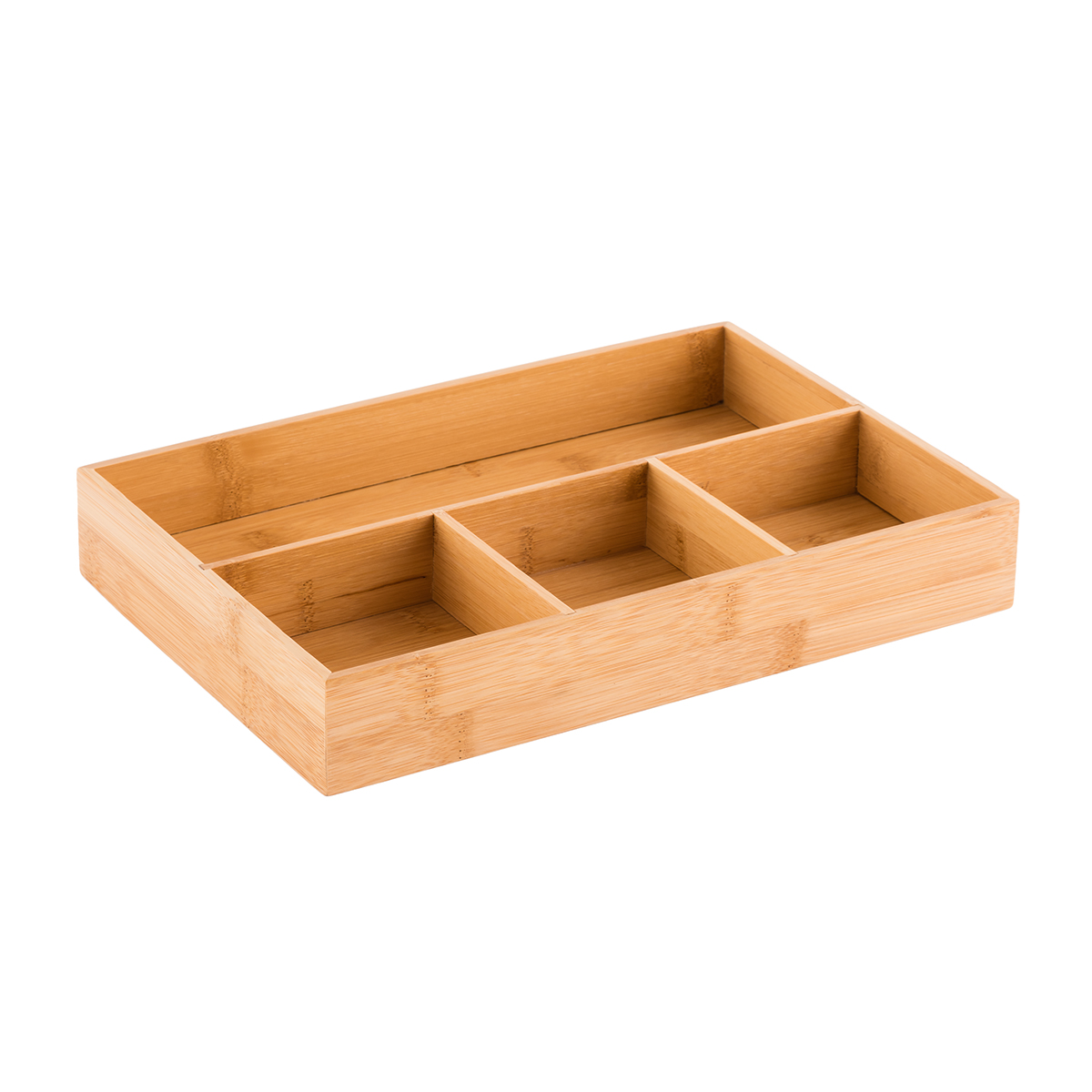As a naturally organized person and someone who avoids clutter, people often remind me that when I have children I’ll be singing a different tune. I won’t be able to keep up with my children’s clutter or their tantrums, and I’ll have to accept that the house is a complete disaster.
Sure.
I’ll accept it. Every once and a while. But not always.
I don’t think any parent needs to accept anything his/her child does. Because the parent is in charge! Again, I don’t have kids of my own yet, and I’m sure every parent out there is balling up their fists at my audacity, however…
I’ve spent ten years either teaching, nannying, or supervising children and teenagers in a classroom, home, and summer camp. I’ve been around children and teens, and have extensive knowledge of education philosophies, and child psychology and development. Plus, I’ve had to get children who I didn’t birth to listen to me and do what I say. Most of the time, about thirty children all at once. It’s tough. But if you want your home to stay organized—most of the time—then I suggest following these steps:
1) ESTABLISH YOUR AUTHORITY.
You don’t have to be mean. Teachers are always told to be “kind, but firm.” You’re in charge, and don’t ever doubt that for a second, otherwise your children will doubt you. Don’t yell, but speak in a serious, stern tone. Don’t give in. Be consistent. Follow through. And although it’s exhausting, don’t let your children give up. Continue to kindly encourage them to fulfill their duties.
2) DECIDE ON RULES AND ORGANIZATIONAL SYSTEMS TOGETHER.
While you should always remain the leader and authority on matters, children want to at least feel like they have choice in their lives. Before you begin, let your children know that they are an important part of the organizational process, but you will have the final say. Make sure that is very clear. Then, go through the house together deciding places for everything. Discuss why a certain item should always return to a certain place. Make sure there is a logical reason for where each item belongs.
3) ESTABLISH A ROUTINE.
Children thrive with routine and structure. They feel safe when they know their lives are consistent and predictable. Every day and week should have a similar routine. Cleaning up the day’s mess and returning items to their designated place should be a part of the day’s routine, and your children should clean up after themselves as long as they are able. We should expect children to do anything that they are physically capable of—toddlers can return small toys to a bin; teenagers can unload/load the dishwasher and laundry. Don’t do your children’s chores for them when they do it the wrong way; take the time (I know it’s exhausting!) to teach the correct way and watch as they practice over and over until they get it right.
4) KEEP TOYS OUT OF CHILDREN’S BEDROOMS. DESIGNATE A TOY SPACE.
Every parent feels differently, but I don’t like the idea of my children’s toys in every space of my home (who knows, maybe that will change). Growing up, we were fortunate enough to have a toy room, and I think that’s a great idea if you have the space. It could be a corner, a room, or an entire basement. Toys should STAY OUT of the bedroom. A bedroom should only be a place to sleep and get dressed. Toys and other entertainment are distracting and prohibit your children from a good night’s sleep.
5) MAKE CLEANING AND ORGANIZING FUN.
Cleaning and organizing, while it is often a chore, can be made fun! Setting a timer and racing against the clock to get a space clean can be fun for competitive children. Turning on music and creating a game for organizing—like a puzzle—can be fun for your easygoing children. When you have a positive attitude and don’t act like cleaning is a chore, children will always find ways to make it fun. Somehow, one year while I was a summer camp supervisor watching 6-9 year olds, I was able to convince the kids that cleaning was fun, and they couldn’t wait until the end of every day to return all the toys and games to their designated spaces. Children want to please adults, because they want affection and like to be praised. Now, don’t manipulate that, but you can use positive reinforcement to show them that their hard work pays off.
6) GIVE THEM SMALL GOALS/ EASY JOBS.
When all is said and done, children are just children. You shouldn’t expect your children to clean your entire home or be the gatekeeper of organization! Don’t expect too much from your wee ones. Based on their ages, abilities, and responsibility levels, give your children small goals, and easy jobs. They shouldn’t be dusting the ceiling fans or scrubbing mildew just yet; however, they are fully capable of cleaning up after themselves. The goal is not to create live-in maids out of your children, but to teach them responsibility for their own possessions and themselves. They should be expected to help with small chores, take care of their own belongings, and exhibit responsible behaviors. These traits are paramount to their success, independence, and, ultimately, happiness in their adult lives.
Remember, your home doesn’t have to be, nor will it be, sparkling clean and neurotically organized while your children grow, but it doesn’t have to be a complete disaster. If you feel like your children have completely taken over your home and you see red and yellow plastic toys everywhere, there are ways to take your home back. You might think your children don’t want to be organized or help clean, but that’s not true. Every child wants to feel useful, able, and important. They are! Let your children know that they are an important part of the family by giving them the responsibility of cleaning up after themselves and keeping your home organized. It will contribute to their happiness as children and their independence and success as adults.




